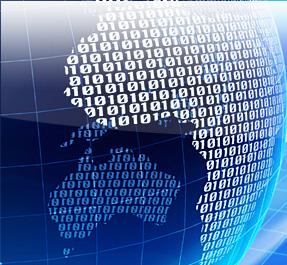Facebook’s CEO and founder Mark Zuckerberg, has today announced the launch of Internet.org, a project involving some of the leading IT players that aims to make internet access to available to the developing world.
The highly ambitious project aims to make internet access cheaper for people around the world when using their smartphones and mobile devices.
Cynical Ploy?
Facebook has 1.15 billion monthly active users (as of June), and cynics might argue that the project is simply a bid to expand its market now that the social networking platform has reached saturation point in many Western markets.
More than one in seven people in the world use Facebook, and now the company wants to make “internet access available to the next 5 billion people,”, i.e. the remaining two thirds of the world that doesn’t have internet access. Currently, one third of the planet’s population (about 2.7 billion people) have internet access.
Ericsson, Nokia, Opera, Samsung and Qualcomm have all joined internet.org, promising to “develop joint projects, share knowledge, and mobilise industry and governments to bring the world online.”
“Everything Facebook has done has been about giving all people around the world the power to connect,” Zuckerberg said. “There are huge barriers in developing countries to connecting and joining the knowledge economy. Internet.org brings together a global partnership that will work to overcome these challenges, including making internet access available to those who cannot currently afford it”
Smartphones In Africa
Internet.org is therefore concentrating on three core challenges.
Firstly it will seek to make internet access more affordable for mobile devices; secondly it wants to improve efficiency by ‘dramatically reducing’ the amount of data that apps and internet experiences consume. And thirdly it seeks to help businesses drive access with the creation of ‘new sustainable business models.’
 “For more than 100 years, Ericsson has been enabling communications for all and today more than 6 billion people in the world have access to mobile communications,” said Hans Vestberg, President and CEO of Ericsson. “We are committed to shaping the Networked Society – where everyone and everything will be connected in real time; creating the freedom, empowerment and opportunity to transform society. We believe affordable connectivity and internet access improves people’s lives and helps build a more sustainable planet and therefore we are excited to participate in the internet.org initiative.”
“For more than 100 years, Ericsson has been enabling communications for all and today more than 6 billion people in the world have access to mobile communications,” said Hans Vestberg, President and CEO of Ericsson. “We are committed to shaping the Networked Society – where everyone and everything will be connected in real time; creating the freedom, empowerment and opportunity to transform society. We believe affordable connectivity and internet access improves people’s lives and helps build a more sustainable planet and therefore we are excited to participate in the internet.org initiative.”
“Nokia is deeply passionate about connecting people – to one another and the world around them,” said Nokia president and CEO Stephen Elop. “Over the years, Nokia has connected well over a billion people. Our industry is now at an exciting inflection point where Internet connectivity is becoming more affordable and efficient for consumers while still offering them great experiences. Universal internet access will be the next great industrial revolution.”
“This new initiative has big potential to help accelerate access to the Internet for everyone,” said JK Shin, CEO and president of the IT & mobile communications division at Samsung Electronics. “We’re focused on delivering high quality mobile devices to ensure that the next five billion people have great mobile Internet experiences.”
Medicine Or Internet?
Facebook and co are not the only tech vendors interested in pushing internet access to the developing world.
In June Google for example launched 30 high-altitude, solar-powered balloons in New Zealand. The balloons (known as Project Loon) are capable of delivering Internet access at 3G speeds to specialised antennas on the ground below. The idea is that these wireless blimp networks could be rolled out to Africa and other regions where internet access is patchy.
However the idea that internet access is high on the list of people’s priorities in places like Africa was given short shrift by Microsoft’s co-founder and current chairman, Bill Gates.
Bill Gates is of course well known for his charitable work in the developing world, and is one of the main drivers behind projects to eradicate polio and malaria.
During an interview with Bloomberg Businessweek earlier this month, Gates was asked whether he thought bringing internet to parts of the world would help solve problems.
“When you’re dying of malaria, I suppose you’ll look up and see that balloon, and I’m not sure how it’ll help you,” Gates replied.
What do you know about Facebook? Find out with our quiz!





